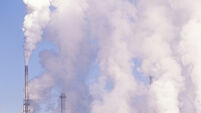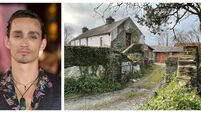Hundreds of deer lost feeding grounds in Killarney wildfires

A hind Sika deer with her family standing near the entrance of Glaisín na Marbh and the Eagles Nest, along the River Laune, in the aftermath of the blaze. Picture: Valerie O'Sullivan
Hundreds of deer have lost their feeding grounds in the wildfires that swept through Killarney National Park.
The Irish Deer Commission (IDC) has said the displacement is set to bring them into conflict with motorists and farmers, but are warning against calls for severe culls.
CLIMATE & SUSTAINABILITY HUB
















